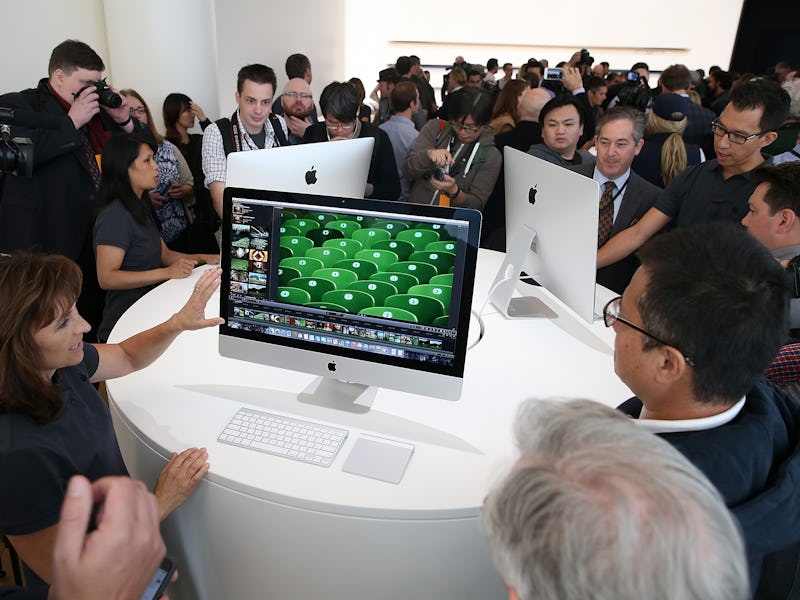Should Libraries Train People to Use Technology?
Is the future of a library a place without books?

Librarians are helpers. They help people find physical books in a library, lead people towards new information, or help someone find a water fountain. The role of the librarian is often assumed to be solely devoted to bound books, but that was never, and certainly in 2015, isn’t the case. Librarians are fully expected to be able to help people in many facets of discovery and learning that goes simply beyond books.
I first volunteered at a library when I was barely a teenager to kill summertime, rack up mandatory volunteer hours at my school, and to spend time where my father worked. I got to college and before my first day of classes, I grabbed an application for the school library. I got the job at the top of my sophomore year and worked until the last week of graduation. Before I started doing what I do now — writing internet words — I was working at a library. My father and mother both work at libraries. I kind of get libraries.
People outside of the library bubble might still see them as a place for old books and where kids can go run around with little impunity; they’re becoming places that are expanding, not contracting, their reach in the digital age. One of the primary questions that I’d receive was to help with online job applications. Not that people didn’t understand how to fill out a job application, but when one lacks basic computer literacy even Googling the application portal could be a huge barrier. Many libraries teach classes that go over the basics of computers for people, from Microsoft Word to simple internet browsing. The reason being that to really take advantage of e-books and advanced research methods that the library offers means being literate beyond simple words.
Libraries are blessed and cursed with never being too on the breaking edge of technology. A local librarian being ready to help with one’s Kindle or tablet is reasonable, where being frustrated they cannot help with an Oculus Rift is probably unreasonable. But in a way that is fine, because libraries — when it comes to technology — are not trying to be cutting edge as much as help with the day-to-day needs of the average library user. If virtual reality assistance is what a child needs to finish a book report, then libraries will be ready to step it up, but until that point them pointing towards the right websites and books is more than enough.
The other questions that would be frequent would be ones that involve issues with cell phones or other devices that people in 2015 cannot escape using, but still don’t fully comprehend. Just connecting to the wi-fi of the library could be a five or 10 minute explanation when, for many people, such an inquiry would just be second nature. That is why libraries are increasingly finding ways to help better inform people about all kind of technology. The library is a place to discover knowledge, which means librarians must be ready to lead no matter the medium.